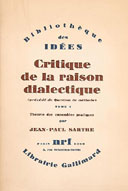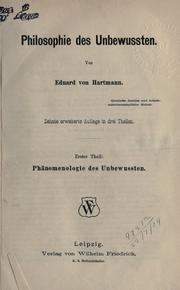Related Research Articles

Jacques Marie Émile Lacan was a French psychoanalyst and psychiatrist. Described as "the most controversial psycho-analyst since Freud", Lacan gave yearly seminars in Paris, from 1953 to 1981, and published papers that were later collected in the book Écrits. Transcriptions of his seminars, given between 1954 and 1976, were also published. His work made a significant impact on continental philosophy and cultural theory in areas such as post-structuralism, critical theory, feminist theory and film theory, as well as on the practice of psychoanalysis itself.
Psychoanalysis is a set of theories and therapeutic techniques that deal in part with the unconscious mind, and which together form a method of treatment for mental disorders. The discipline was established in the early 1890s by Sigmund Freud, whose work stemmed partly from the clinical work of Josef Breuer and others. Freud developed and refined the theory and practice of psychoanalysis until his death in 1939. In an encyclopedic article, he identified the cornerstones of psychoanalysis as "the assumption that there are unconscious mental processes, the recognition of the theory of repression and resistance, the appreciation of the importance of sexuality and of the Oedipus complex." Freud's colleagues Alfred Adler and Carl Gustav Jung developed offshoots of psychoanalysis which they called individual psychology (Adler) and analytical psychology (Jung), although Freud himself wrote a number of criticisms of them and emphatically denied that they were forms of psychoanalysis. Psychoanalysis was later developed in different directions by neo-Freudian thinkers, such as Erich Fromm, Karen Horney, and Harry Stack Sullivan.

Sigmund Freud was an Austrian neurologist and the founder of psychoanalysis, a clinical method for evaluating and treating pathologies seen as originating from conflicts in the psyche, through dialogue between patient and psychoanalyst, and the distinctive theory of mind and human agency derived from it.
In psychoanalysis and other psychological theories, the unconscious mind is the part of the psyche that is not available to introspection. Although these processes exist beneath the surface of conscious awareness, they are thought to exert an effect on conscious thought processes and behavior. Empirical evidence suggests that unconscious phenomena include repressed feelings and desires, memories, automatic skills, subliminal perceptions, and automatic reactions. The term was coined by the 18th-century German Romantic philosopher Friedrich Schelling and later introduced into English by the poet and essayist Samuel Taylor Coleridge.
Psychoanalytic theory is the theory of personality organization and the dynamics of personality development relating to the practice of psychoanalysis, a clinical method for treating psychopathology. First laid out by Sigmund Freud in the late 19th century, psychoanalytic theory has undergone many refinements since his work. The psychoanalytic theory came to full prominence in the last third of the twentieth century as part of the flow of critical discourse regarding psychological treatments after the 1960s, long after Freud's death in 1939. Freud had ceased his analysis of the brain and his physiological studies and shifted his focus to the study of the psyche, and on treatment using free association and the phenomena of transference. His study emphasized the recognition of childhood events that could influence the mental functioning of adults. His examination of the genetic and then the developmental aspects gave the psychoanalytic theory its characteristics.
Being and Nothingness: An Essay on Phenomenological Ontology, sometimes published with the subtitle A Phenomenological Essay on Ontology, is a 1943 book by the philosopher Jean-Paul Sartre. In the book, Sartre develops a philosophical account in support of his existentialism, dealing with topics such as consciousness, perception, social philosophy, self-deception, the existence of "nothingness", psychoanalysis, and the question of free will.

Critique of Dialectical Reason is a 1960 book by the philosopher Jean-Paul Sartre, in which the author further develops the existentialist Marxism he first expounded in his essay Search for a Method (1957). Critique of Dialectical Reason and Search for a Method were written as a common manuscript, with Sartre intending the former to logically precede the latter. Critique of Dialectical Reason was Sartre's second large-scale philosophical treatise, Being and Nothingness (1943) having been the first. The book has been seen by some as an abandonment of Sartre's original existentialism, while others have seen it as a continuation and elaboration of his earlier work. It was translated into English by Alan Sheridan-Smith.

Analytical psychology is a term coined by Carl Jung, a Swiss psychiatrist, to describe research into his new "empirical science" of the psyche. It was designed to distinguish it from Freud's psychoanalytic theories as their seven-year collaboration on psychoanalysis was drawing to an end between 1912 and 1913. The evolution of his science is contained in his monumental opus, the Collected Works, written over sixty years of his lifetime.

Bad faith is a sustained form of deception which consists of entertaining or pretending to entertain one set of feelings while acting as if influenced by another. It is associated with hypocrisy, breach of contract, affectation, and lip service. It may involve intentional deceit of others, or self-deception.
In philosophy, transcendence is the basic ground concept from the word's literal meaning, of climbing or going beyond, albeit with varying connotations in its different historical and cultural stages. It includes philosophies, systems, and approaches that describe the fundamental structures of being, not as an ontology, but as the framework of emergence and validation of knowledge of being. These definitions are generally grounded in reason and empirical observation and seek to provide a framework for understanding the world that is not reliant on religious beliefs or supernatural forces. "Transcendental" is a word derived from the scholastic, designating the extra-categorical attributes of beings.
Repression is a key concept of psychoanalysis, where it is understood as a defense mechanism that "ensures that what is unacceptable to the conscious mind, and would if recalled arouse anxiety, is prevented from entering into it." According to psychoanalytic theory, repression plays a major role in many mental illnesses, and in the psyche of the average person.

In social theory and philosophy, antihumanism or anti-humanism is a theory that is critical of traditional humanism, traditional ideas about humanity and the human condition. Central to antihumanism is the view that philosophical anthropology and its concepts of "human nature", "man" or "humanity" should be rejected as historically relative, ideological or metaphysical.
Christopher Janaway is a philosopher and author. He earned degrees from the University of Oxford. Before moving to Southampton in 2005, Janaway taught at the University of Sydney and Birkbeck, University of London. His recent research has been on Arthur Schopenhauer, Friedrich Nietzsche and aesthetics. His 2007 book Beyond Selflessness: Reading Nietzsche's Genealogy focuses on a critical examination of Nietzsche's On the Genealogy of Morals. Janaway currently lectures at the University of Southampton, which in the past has included a module focusing on Nietzsche's Genealogy. That module is now convened by Janaway's colleague, Aaron Ridley.
Metapsychology is that aspect of any psychological theory which refers to the structure of the theory itself rather than to the entity it describes. The psychology is about the psyche; the metapsychology is about the psychology. The term is used mostly in discourse about psychoanalysis, the psychology developed by Sigmund Freud, which was at its time regarded as a branch of science, or, more recently, as a hermeneutics of understanding. Interest on the possible scientific status of psychoanalysis has been renewed in the emerging discipline of neuropsychoanalysis, whose major exemplar is Mark Solms. The hermeneutic vision of psychoanalysis is the focus of influential works by Donna Orange.
Ivan Soll is an American philosopher who is a Professor Emeritus in the Department of Philosophy at the University of Wisconsin–Madison in the United States. He taught at UW from 1965 until his retirement in May 2011. His teaching and research focused on the philosophy of Friedrich Nietzsche, German philosophy in general, existentialism, aesthetics, and various figures of continental philosophy.

Knowledge and Human Interests is a 1968 book by the German philosopher Jürgen Habermas, in which the author discusses the development of the modern natural and human sciences. He criticizes Sigmund Freud, arguing that psychoanalysis is a branch of the humanities rather than a science, and provides a critique of the philosopher Friedrich Nietzsche.

Freud and Philosophy: An Essay on Interpretation is a 1965 book about Sigmund Freud, the founder of psychoanalysis, written by the French philosopher Paul Ricœur. In Freud and Philosophy, Ricœur interprets Freudian work in terms of hermeneutics, a theory that governs the interpretation of a particular text, and phenomenology, a school of philosophy founded by Edmund Husserl. Ricœur addresses questions such as the nature of interpretation in psychoanalysis, the understanding of human nature and the relationship between Freud's interpretation of culture amongst other interpretations. The book was first published in France by Éditions du Seuil, and in the United States by Yale University Press.

Philosophy of the Unconscious: Speculative Results According to the Induction Method of the Physical Sciences is an 1869 book by the philosopher Eduard von Hartmann. The culmination of the speculations and findings of German romantic philosophy in the first two-thirds of the 19th century, Philosophy of the Unconscious became famous. By 1882, it had appeared in nine editions. A three volume English translation appeared in 1884. The English translation is more than 1100 pages long. The work influenced Sigmund Freud's and Carl Jung's theories of the unconscious.

Philosophical Essays on Freud is a 1982 anthology of articles about Sigmund Freud and psychoanalysis edited by the philosophers Richard Wollheim and James Hopkins. Published by Cambridge University Press, it includes an introduction from Hopkins and an essay from Wollheim, as well as selections from philosophers such as Ludwig Wittgenstein, Clark Glymour, Adam Morton, Stuart Hampshire, Brian O'Shaughnessy, Jean-Paul Sartre, Thomas Nagel, and Donald Davidson. The essays deal with philosophical questions raised by the work of Freud, including topics such as materialism, intentionality, and theories of the self's structure. They represent a range of different viewpoints, most of them from within the tradition of analytic philosophy. The book received a mixture of positive, mixed, and negative reviews. Commentators found the contributions included in the book to be of uneven value.
Censorship (psychoanalysis) (Zensur) is the force identified by Sigmund Freud as operating to separate consciousness from the unconscious mind.
References
- ↑ Cottingham, John (October 1996). "Irrationality and the Philosophy of Psychoanalysis". The Philosophical Quarterly . 46 (185). Cambridge University Press: 544–546. doi:10.2307/2956372. JSTOR 2956372.
- ↑ Shabel, Lisa (1 July 2001). "Kant and the Critique of Pure Reason. Sebastian Gardner". Mind. 110 (439): 753–756. doi:10.1093/mind/110.439.753. ISSN 0026-4423.
- ↑ "Professor Sebastian Gardner". 26 July 2018.
- ↑ Gardner, Sebastian (25 March 1993). Irrationality and the Philosophy of Psychoanalysis. Cambridge University Press. doi:10.1017/cbo9780511554599. ISBN 978-0-521-41090-8..